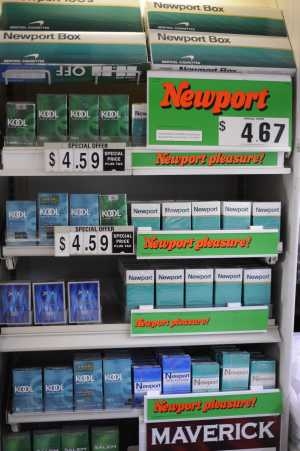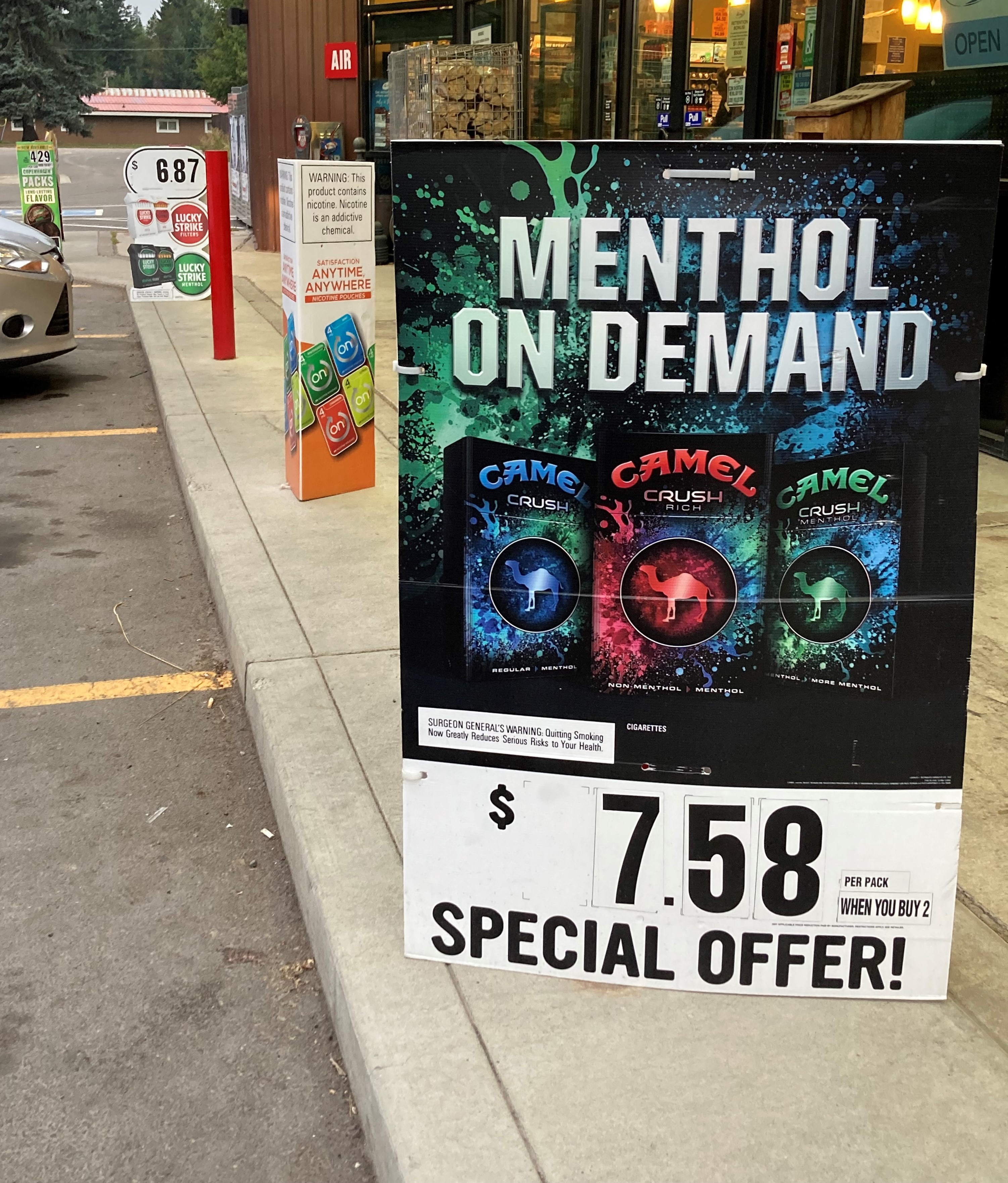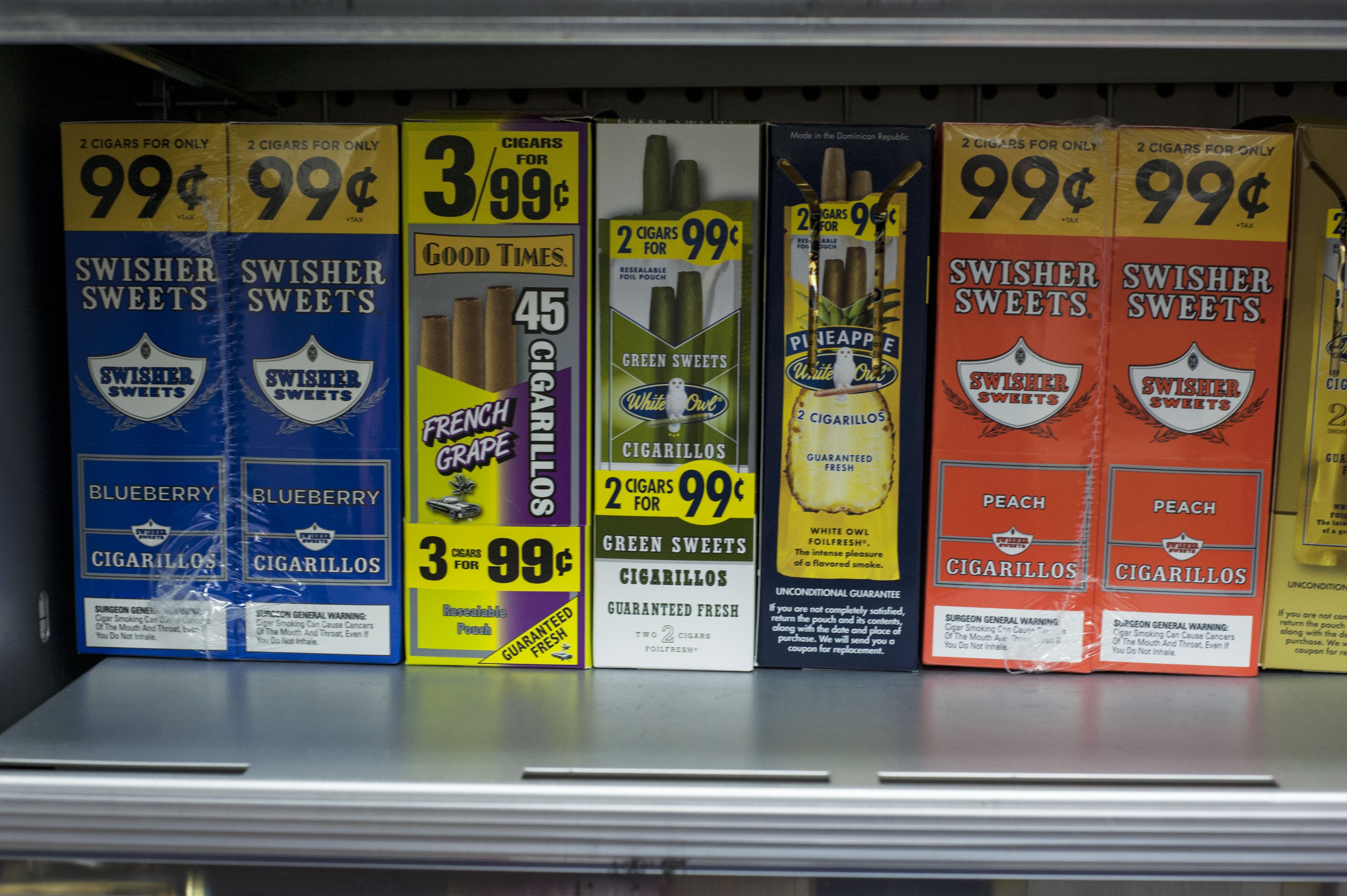Welcome to CounterTobacco.org’s “News and Research Roundup!” Each month we post a summary of the latest research, reports, and news stories on counteracting tobacco product sales and marketing at the point of sale (POS). Keeping up with what’s happening in the POS movement all across the country can help you choose policies and strategies that work best for your community. New research can help provide support for your work and evidence for the importance of the “War in the Store.” Have a story you don’t want us to miss? E-mail it to us!
New Research
Menthol and Other Flavored Tobacco Products
- Are California’s Local Flavored Tobacco Sales Restrictions Effective in Reducing the Retail Availability of Flavored Tobacco Products? A Multicomponent Evaluation, Evaluation Review
 A study comparing product availability in California jurisdictions that had passed ordinances restricting the sale of flavored tobacco products with similar jurisdictions that had not passed such ordinances found that availability was lower for menthol cigarettes (40.6% vs. 95.0%), cigarillos/cigar wraps with explicit flavor descriptors (56.4% vs. 85.0%), and vaping products with explicit flavor descriptors (6.1% vs. 56.9%) in jurisdictions with ordinances in place. The results show that restrictions on the sale of flavored tobacco products are effective at reducing their retail availability. However, other components of the study showed that there are some needed improvements for compliance, including with addressing advertising for flavored products and any barriers retailers perceive to compliance.
A study comparing product availability in California jurisdictions that had passed ordinances restricting the sale of flavored tobacco products with similar jurisdictions that had not passed such ordinances found that availability was lower for menthol cigarettes (40.6% vs. 95.0%), cigarillos/cigar wraps with explicit flavor descriptors (56.4% vs. 85.0%), and vaping products with explicit flavor descriptors (6.1% vs. 56.9%) in jurisdictions with ordinances in place. The results show that restrictions on the sale of flavored tobacco products are effective at reducing their retail availability. However, other components of the study showed that there are some needed improvements for compliance, including with addressing advertising for flavored products and any barriers retailers perceive to compliance.
- Analysis of Wholesale Cigarette Sales in Canada After Menthol Cigarette Bans, JAMA Network Open
- An analysis of sales data across Canada following the country’s ban on the sale of menthol cigarettes found that sales of both menthol cigarettes and all cigarettes decreased, indicating that more people who previously smoked menthol quit smoking than switched to non-menthol cigarettes.
- News story: Study: Ban on menthol cigarettes in Canada had more people quit smoking, UPI
- Tobacco industry strategies for flavour capsule cigarettes: analysis of patents and internal industry documents, Tobacco Control
- T
 his study analyzed tobacco industry documents relating to flavour capsule variants, or cigarettes with a crushable flavor capsule (e.g. Camel Crush). Results showed that tobacco companies have developed flavor capsules that can fit into cigarettes, packs, or recessed filters that may allow users to modify their cigarettes in a way that would circumvent flavor bans. Researchers suggest that regulators should consider these designs and design policies without loopholes that tobacco companies could exploit with these capsules.
his study analyzed tobacco industry documents relating to flavour capsule variants, or cigarettes with a crushable flavor capsule (e.g. Camel Crush). Results showed that tobacco companies have developed flavor capsules that can fit into cigarettes, packs, or recessed filters that may allow users to modify their cigarettes in a way that would circumvent flavor bans. Researchers suggest that regulators should consider these designs and design policies without loopholes that tobacco companies could exploit with these capsules.
- T
- Brief report: Menthol e-cigarette sales rise following 2020 FDA guidance, Tobacco Control
- An analysis of sales data shows that after Juul removed their mint-flavored e-cigarette pods from the market in 2019, the market share of menthol-flavored e-cigarettes increased by 59.4% over 4 weeks. When the FDA prohibited the sale of all cartridge or pod-based e-cigarettes in flavors other than menthol and tobacco, the market share of menthol e-cigarettes increased by 54.5% over 4 weeks and by 82.8% over 8 weeks. While total e-cigarette sales declined following these actions, this data shows the need for regulating all flavored e-cigarettes, including menthol.
Enforcement
- Using place-based characteristics to inform FDA tobacco sales inspections: results form a multilevel propensity score model, Tobacco Control
- This study used a propensity score model to identify areas with a high likelihood of retailers selling to underage youth, looking at previous violation records as well as community social-ecological and contextual factors to predict future violations. This model could improve sampling for FDA inspections to capture more potential violations without targeting neighborhoods based solely on income or race and ethnicity makeup.
- Compliance to FDA’s elimination of free tobacco product sampling at vape shops, Addictive Behaviors
- This study assessed vape shop compliance with the FDA’s 2016 Deeming Rule’s ban on free sampling. Interviews with vape shop employees conducted between November 2017 and December 2018 showed that while 92.6% complied with the new policy, only 28.1% eliminating product sampling entirely. Instead, most modified their practices to charge a small fee for samples. The researchers suggest that regulations should be more clear and could include practices like standardized pricing for samples or more clearly eliminate all sampling to ensure better compliance.
Other
 Influence of cigarillo packaging characteristics on young adults’ perceptions and intentions: findings from three online experiments, Tobacco Control
Influence of cigarillo packaging characteristics on young adults’ perceptions and intentions: findings from three online experiments, Tobacco Control
- This study assessing young adult perceptions and purchase intentions found that “variations in cigarillo packaging, even among cigarillos with the same flavour, may have differential consumer appeal, suggesting packaging features should be considered in cigar product regulation.
- Proximity of IQOS and JUUL points of sale to schools in Israel: a geospatial analysis, Tobacco Control
- This study found that 86% of schools in Israel had at least one store selling iQOS within 1 km and 74% of schools had at least one store selling JUUL within 1 km. Schools in neighborhoods with middle socioceconomic status had the highest density of retailers selling both iQOS and JUUL.
- A qualitative assessment of the perceptions and attitudes towards commercial tobacco policies and education among tribal communities in California, American Journal of Drug and Alcohol Abuse
- Focus groups with twelve Tribal communities conducted between 2016-2019 regarding community readiness for commercial tobacco policies found support for unwritten, community-based “small p” policies but little to no support for “big P” policies like written ordinances. Researchers note that participants wished for outsiders to respect Tribal sovereignty as they work to raise awareness of the dangers associated with commercial tobacco use.
Industry News
- Reynolds’ Vuse closing gap with top-selling e-cigarette Juul, Winston-Salem Journal
- Philip Morris International meets with FDA to make its case for Iqos in patent dispute, CNBC
- FDA Takes Second Look at Some PMTAs as Companies Challenge Agency’s Marketing Denial Orders, Convenience Store News
- Cigar Sales Surge, Convenience Store Decisions
- 4 Highlights from Altria’s Q3 2021 Earnings Call, CSP Daily News
- Elevating the Modern Oral Nicotine Category, Convenience Store News
- Puff Bar CEOs on the company behind the popular e-cigarette brand: “There was a lot of shadowiness before”, CBS News
POS Policy in the Media
Menthol and Other Flavored Tobacco Products
- [OR] Washington County first in Oregon to ban sale of flavored tobacco products, OPB
- [ME] Portland Moves Towards Banning Flavored Tobacco Products, US News
- [CA] Walnut Creek Considers Ban on Selling Flavored Tobacco, Vaping Products, CBS San Francisco
- [CA] Redwood City bans flavored tobacco products, San Mateo Daily Journal
- [PA] Philadelphia can’t enforce flavored tobacco sales ban, federal court rules, Reuters
- Tobacco lawsuits could upend Biden’s plan for historic menthol ban, Politico
E-cigarettes
- E-cigarette users face 15% higher risk of stroke at a young age than traditional smokers, Medical Xpress
- Vaping is Risky. Why Is the F.D.A. Authorizing E-Cigarettes?, New York Times Magazine
- Juul to pay $14.5 mln to settle AZ lawsuit over youth marketing, Reuters
Endgame
Licensing
- [KY] New tobacco license needed for shops in Louisville; see what’s changing, WLKY
- [CA] Hesperia Council gets tough on tobacco retailers, Victorville Daily Press
Find more stories in last month’s News and Research Roundup.
Know of a story that we missed? Email us, and we’ll be sure to include it in next month’s roundup!


